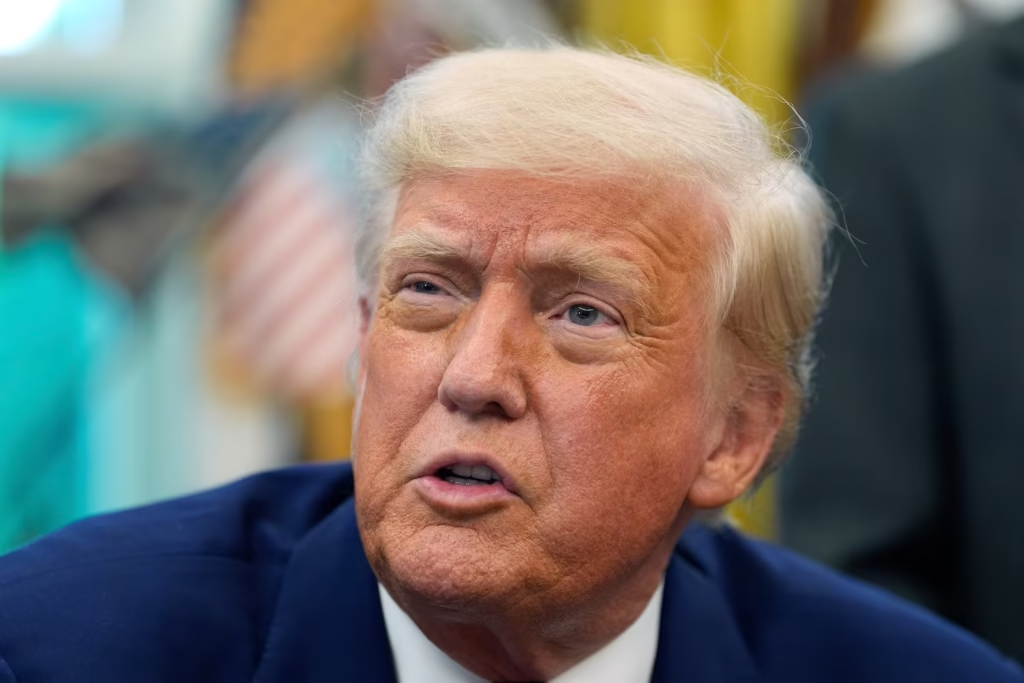On May 9, 2025, White House Deputy Chief of Staff Stephen Miller made headlines when he revealed that the Trump administration was “actively looking at” the possibility of suspending habeas corpus. Habeas corpus, a fundamental right enshrined in the U.S. Constitution, allows individuals to challenge their detention in court. This dramatic potential shift in policy, if executed by President Donald Trump, would represent a significant departure from established legal norms, particularly regarding the treatment of immigrants. The news sparked immediate debate, raising concerns over the constitutional implications and the broader impact on American civil liberties.
Miller’s comments, made outside the White House, were in response to a question from a reporter who asked about the Trump administration’s stance on suspending habeas corpus as a measure to address illegal immigration. Miller’s answer was unequivocal: “First, you know, President Trump has talked about potentially suspending habeas corpus to take care of the illegal immigration problem.” The White House deputy chief of staff went on to explain that while the Constitution provides for the suspension of habeas corpus in cases of rebellion or invasion, it could be invoked under what he described as an ongoing “national security threat” from undocumented immigrants crossing into the United States.
The Constitution, under Article I, Section 9, allows for the suspension of habeas corpus “unless when in cases of rebellion or invasion the public safety may require it.” The United States has suspended habeas corpus four times in history, notably during the Civil War, the Reconstruction era in South Carolina, the Philippine Insurrection in 1905, and in Hawaii after the bombing of Pearl Harbor during World War II. While these instances are rare and have been triggered by extraordinary circumstances, Miller’s suggestion to potentially suspend this fundamental right highlights the Trump administration’s growing focus on curbing illegal immigration through controversial and drastic measures.
Miller defended the administration’s approach by framing the current situation as a national security emergency, arguing that the United States is facing an “invasion” by undocumented migrants. This language mirrors rhetoric used by President Trump himself, who has often referred to the influx of migrants at the southern border as an “invasion.” The rhetoric has been a central part of the administration’s immigration policy, which has focused heavily on security concerns and the need to combat what they see as a direct threat posed by illegal border crossings.
The potential suspension of habeas corpus would allow for the indefinite detention of individuals without them being able to challenge their detention in court, a significant erosion of due process rights. This proposed move follows other controversial actions by the Trump administration, such as invoking the Alien Enemies Act to expedite the deportation of noncitizens, including members of the Venezuelan gang Tren de Aragua. However, two federal judges, including one appointed by Trump, ruled against the administration’s use of the Alien Enemies Act, determining that the U.S. government had not sufficiently proven that the country was under attack by the gang, which undermined the legal foundation for such drastic measures.
In his comments, Miller made it clear that the administration’s decision would depend on whether “the courts do the right thing or not,” seemingly indicating that the government’s actions could be influenced by judicial rulings. This suggestion raised eyebrows, as it implies the Trump administration may seek to bypass or undermine judicial review if the courts rule unfavorably on immigration-related matters. Critics, including legal experts, have argued that this approach is not only unlawful but also threatens the constitutional framework that has safeguarded American civil liberties for centuries.
Georgetown University Law Center professor Steve Vladeck weighed in on the matter, asserting that Miller’s comments misrepresent the legal process. Vladeck pointed out that the U.S. Constitution places the power to suspend habeas corpus squarely with Congress, not the President. “Miller also doesn’t deign to mention that the near-universal consensus is that only Congress can suspend habeas corpus — and that unilateral suspensions by the President are per se unconstitutional,” Vladeck wrote on his Substack blog. He further emphasized that the idea of suspending habeas corpus based on disagreements with judicial rulings was “not, and has never been, a viable argument” for such drastic measures.
The issue of habeas corpus has deep historical roots in the United States. President Abraham Lincoln famously suspended the writ of habeas corpus during the Civil War, a move that was controversial at the time. The suspension was challenged in the courts, and Chief Justice Roger Taney deemed it unlawful, arguing that the power to suspend habeas corpus was vested in Congress, not the executive branch. Lincoln, acknowledging the legal objections, eventually sought and received congressional approval for the suspension, thus ensuring its legality. This historical precedent highlights the constitutional checks and balances that have been in place to prevent any one branch of government from overstepping its bounds.
Miller’s suggestion that the suspension of habeas corpus could be pursued unilaterally by the executive branch is seen by many legal scholars as a dangerous erosion of the separation of powers enshrined in the Constitution. The power to suspend habeas corpus has traditionally been exercised under extreme conditions, such as rebellion or invasion, and has always involved cooperation with or approval from Congress. The notion that a president could unilaterally suspend this fundamental right, particularly for political or policy reasons, is viewed by critics as a direct challenge to the Constitution’s protections for individual rights.
This debate also raises important questions about the balance between national security and civil liberties. While national security concerns, particularly in relation to immigration, are important, the suspension of habeas corpus would significantly undermine the due process rights of individuals, including those detained by the government. Habeas corpus is considered one of the core protections against unlawful detention, ensuring that individuals have the right to challenge their detention and demand a hearing in court. Suspending this right would pave the way for unchecked government detention without oversight or accountability.
As the Trump administration continues to pursue its aggressive immigration agenda, including border wall construction and efforts to restrict asylum, the potential suspension of habeas corpus marks a troubling escalation. Advocates for civil rights and constitutional protections warn that such actions would not only violate the rights of individuals detained at the border but could also set a dangerous precedent for future presidential overreach. The suspension of habeas corpus would represent an unprecedented move in American legal history, fundamentally altering the legal landscape and the rights of citizens and noncitizens alike.
In conclusion, the possibility of suspending habeas corpus under the Trump administration is a controversial and alarming development that has sparked significant legal and constitutional concerns. The suspension of this fundamental right would represent a dramatic shift in U.S. immigration policy, further emphasizing security concerns over civil liberties. While the Constitution allows for the suspension of habeas corpus in extraordinary circumstances, such as rebellion or invasion, critics argue that the move would be unconstitutional without congressional approval and would undermine the legal protections that have been in place for over two centuries. As the debate continues to unfold, it remains to be seen whether the administration will pursue such an action and what the legal consequences would be for the future of civil rights in the United States.


